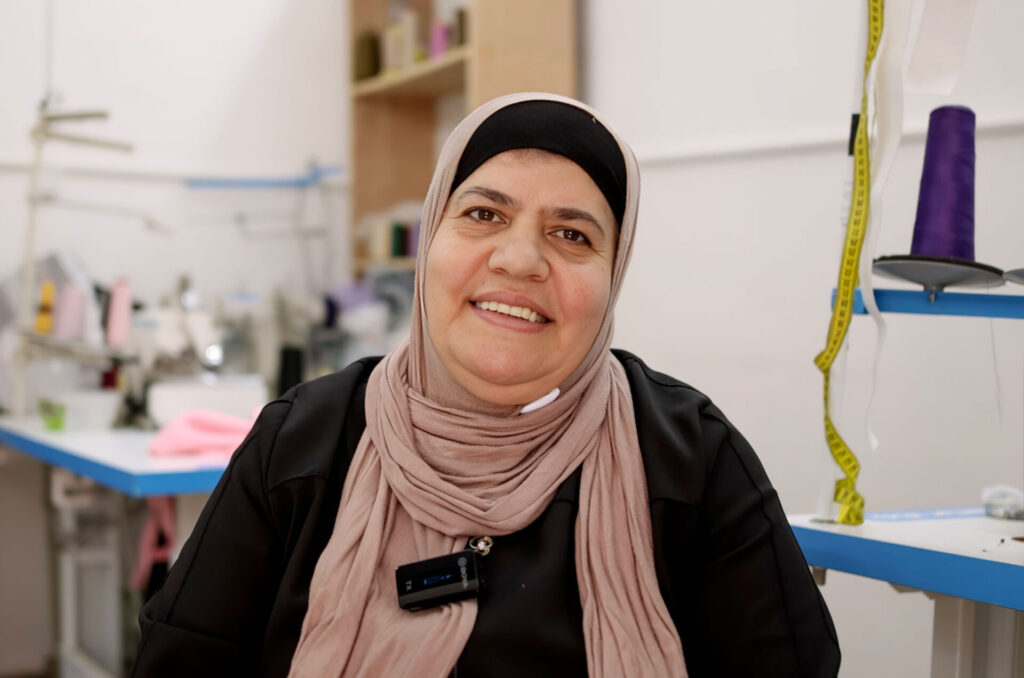Jun, 2021
Medical aid delivers crucial support to health system in Lebanon
Kidney failure is a growing public health problem in Lebanon. The condition is mainly treated through hemodialysis, a costly procedure that imposes a significant financial burden on patients and the healthcare system. The Lebanese Ministry of Public Health covers the cost of dialysis treatments for Lebanese citizens, as well as COVID-19 vaccines and the medications kidney patients need to obtain from specialized dispensaries. However, the county’s economic collapse, its fight with COVID-19, the strain of supporting millions of refugees, and the damage to hospitals caused by the explosion in Beirut last summer have all combined to put Lebanon’s healthcare system in survival mode.
According to the Lebanese Ministry of Public Health’s National Committee for Kidney Health, since 2020 there have been more than 4,100 patients on chronic hemodialysis. These figures do not include the thousands of Syrian and Palestinian refugees who also suffer from kidney failure and other renal diseases. (In contrast to citizens, the government does not cover the expenses of refugee and migrant patients.)
In September 2020, nearly a quarter of hemodialysis departments in hospitals across Lebanon saw cases of COVID-19 among their dialysis patients. Support from Anera’s health partners, like Life and the National Arab American Medical Association (NAAMA), is life-saving.
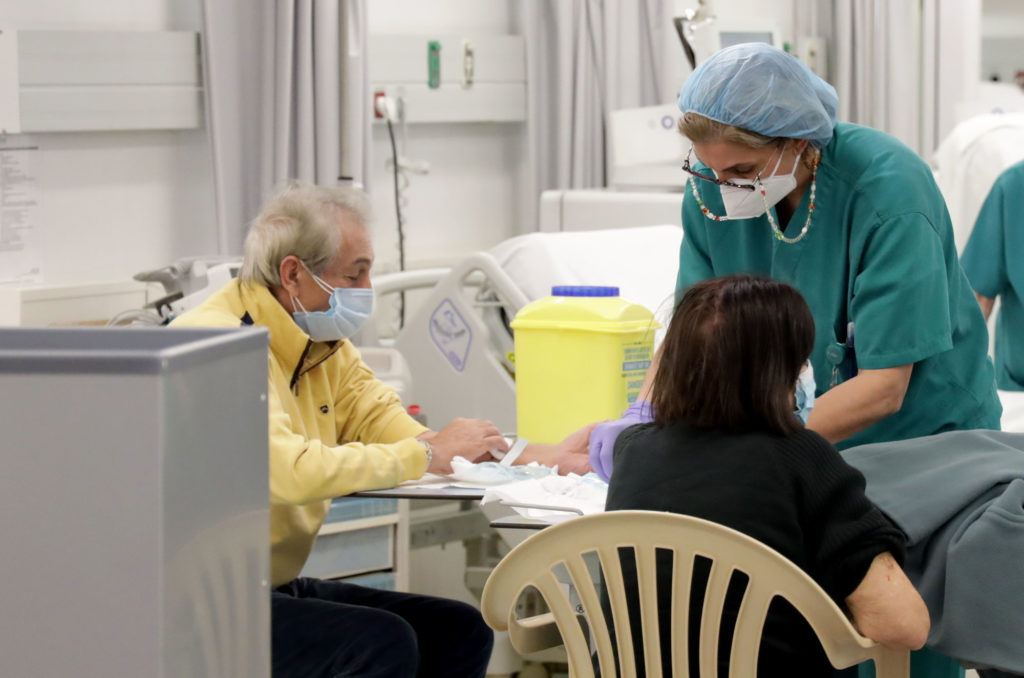
NAAMA, with facilitation by Life, recently donated a shipment of 81 dialysis machines to Anera. We delivered 20 of the machines to the Lebanese American University’s Medical Center (LAUMC), which is well known among residents of greater Beirut for its respected dialysis department.
LAUMC currently serves 60 dialysis patients. Each patient must come in to undergo the four-hour dialysis session three times a week – a punishing schedule made harder during a global pandemic.
Dr. Hala Kilani, the head of the dialysis department at LAUMC, says the new dialysis machines that we just provided to the hospital “will have a huge impact on our patients’ lives.”
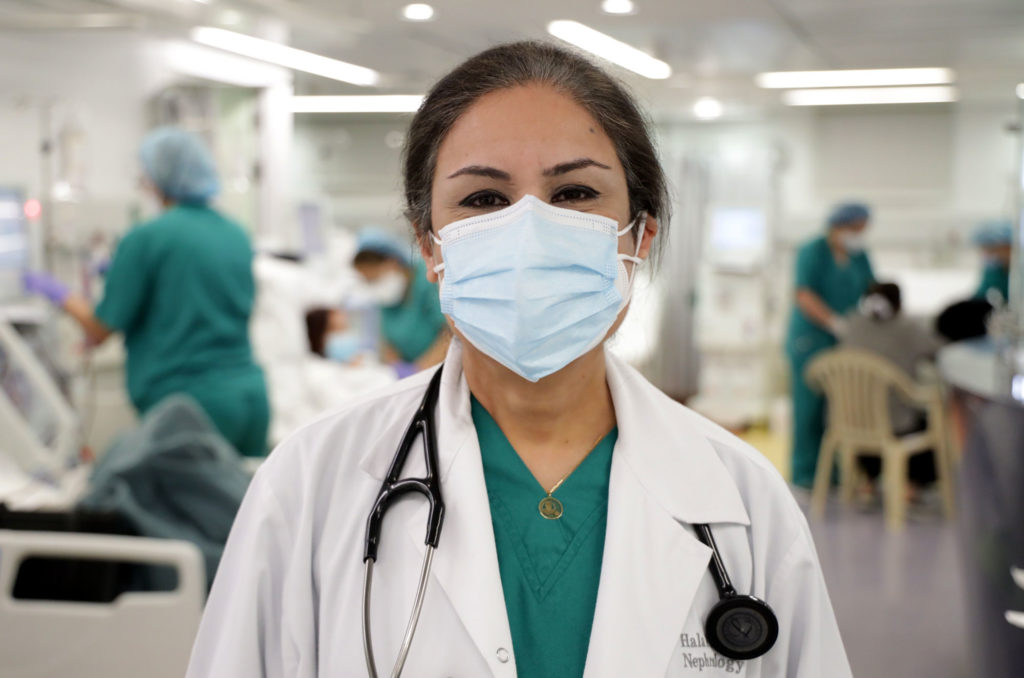
Kilanis says there are two types of renal impairment: acute, where one or two dialysis sessions usually cures the patient; and chronic, which requires lifelong dialysis. “Not all dialysis stories are sad ones,” she says. “We had a patient with prostatitis, who underwent one-time dialysis and didn’t need to undergo dialysis again for another 10 years!”
Those years of renewed health are gold for patients, a chance at living a normal life.
Kilani notes that “patients suffer from acute to severe pain after dialysis. So they should have a place to stay close to the center.” This limits the accessibility of treatment for some vulnerable patients who live in remote rural areas and in refugee camps. Anera is actively working to address this problem by donating 30 dialysis machines to hospitals in rural areas of the country.
Kilani says that many cases of kidney impairment are preventable and that the public needs more health education.

“People tend to self medicate and use anti-inflammatory drugs, for example. Many are also not exercising regularly, and increased obesity, diabetes and blood pressure are among the main factors that negatively affect kidney function.”
Kilani says, “We would like to thank Anera, NAAMA, and Life for providing the center with dialysis machines and helping us enhance human security by providing quality healthcare.”
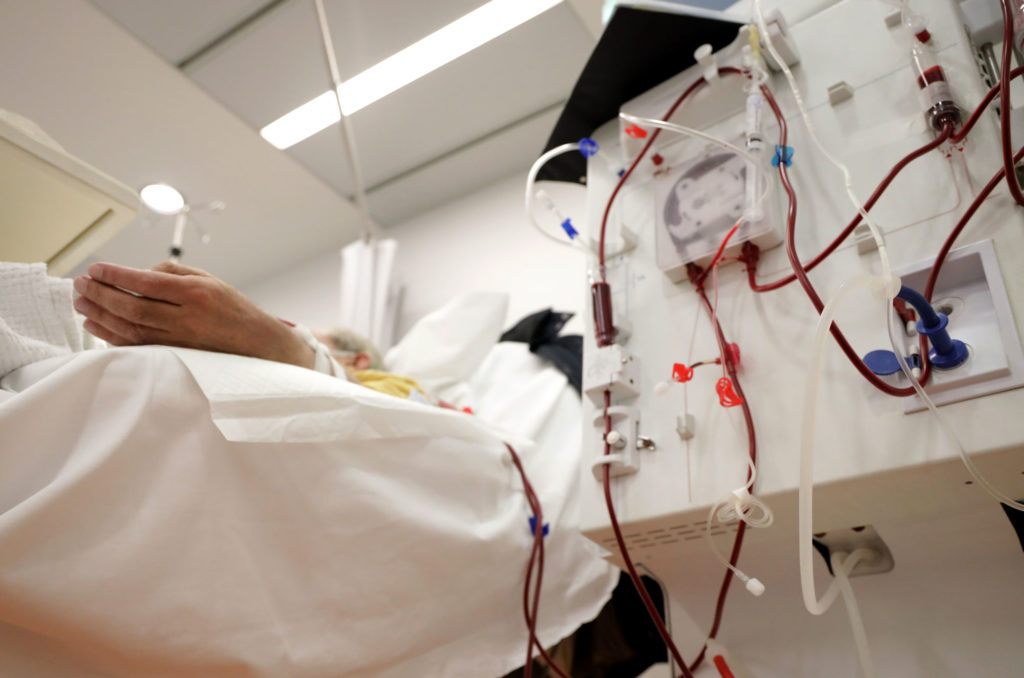
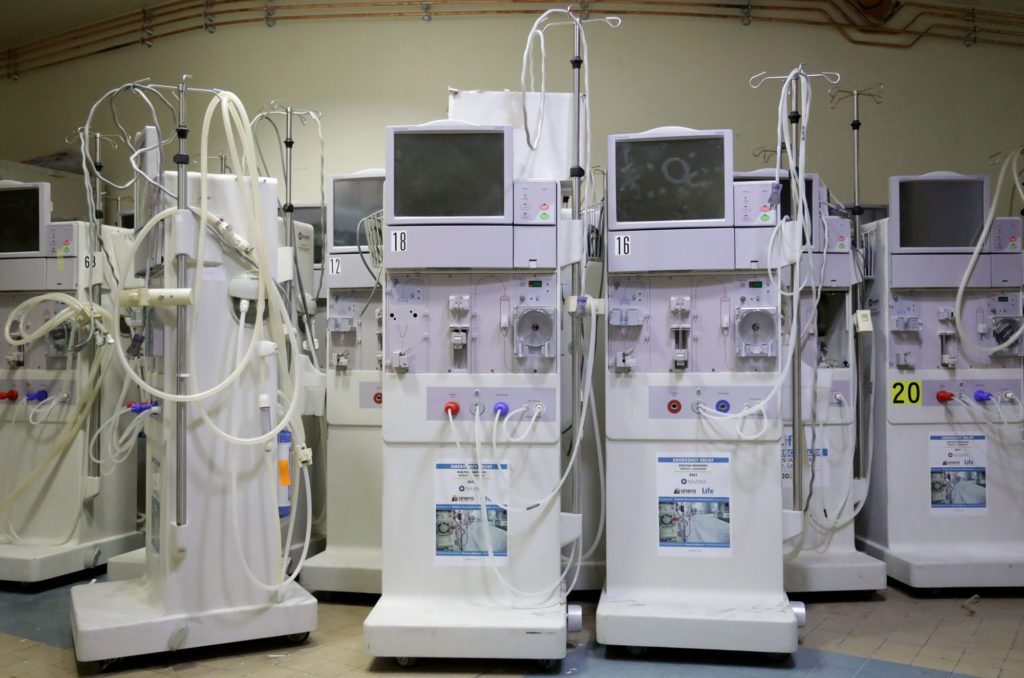
Hisham is one of the patients here. The 67-year-old retired policeman says,

